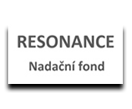Jan Hrušák elected as the Vice-Chairman of the EOSC Steering Board
Jan Hrušák was elected in June 2023 Vice-Chair of the EOSC Steering Board (EOSC-SB). This is a further recognition and acknowledgement of his experience in EOSC (European Open Science Cloud) matters. Jan Hrušák was earlier (2019-2021) acting as an expert and a member of the EOSC Executive Board. During his ESFRI (European Strategy Forum on Research Infrastructures) chairmanship (2019-2021), he led the ESFRI Task Force on EOSC. Currently, he is also a member of the EOSC Task Force on Financial Sustainability that is aiming to secure long term financial sustainability of the main building blocks of EOSC.

European Open Science Cloud Steering Board, the Commission expert group, ensures continuity of the EOSC coordination between the Commission, the Member States and the Associated Countries. The EOSC-SB has provided strategic advice all along the year 2021 to the Commission on the EU policy for research data infrastructure and services, also in view of the Commission’s role in the EOSC governance.
The main purpose of the EOSC- SB is to provide advice and expertise to the Commission in relation to the strategy for the implementation of the EOSC as part of the ERA (European Research Area) Policy Agenda, in line with the Council conclusions of 26 November 2021 on the future governance of the ERA, to support coordination of and synergies with European and national policies and investments in EOSC and to assist in monitoring the overall EOSC strategic development and implementation. The EOSC-SB forms part of the tripartite governance arrangements post 2020 for EOSC, where it represents the collective interests and contributions of the Member States/Associated Countries (MS/AC) and those of the EU. The EOSC-SB closely coordinates with and regularly informs the ERA Forum, as suggested by the Council conclusions.
The EOSC-SB is devoted to the following tasks:
● to provide advice and expertise to the European Commission, in relation to the European policies related to research data infrastructures and services, open science and EOSC, especially in view of the European Commission’s role in the EOSC governance, and
● to assist the strategic coordination between the Commission and MS/AC and the European Economic Area (EEA), the European Free Trade Association (EFTA), especially in the view of the Commission’s role in the EOSC Governance, and stakeholders on questions relating to the implementation of Union legislation, programmes and policies related to Open Science and EOSC, to foster the convergence of European and national open science policies and initiatives.

The EOSC-SB co-operates with the EOSC Association on matters concerning the harmonized development of EOSC in Europe. It develops joint positions and provides strategy papers on issues related to convergence and alignment of European and national policies, initiatives and investments related to open science practices and the EOSC, with special attention to EU open strategic autonomy, the cross-border implications and economic impact of the EOSC, its role to deepening the new ERA, and its articulation with the data spaces defined in the European Strategy for Data.
Jan Hrušák newly elected ESFRI EOSC task force member
Jan Hrušák has been elected to represent ESFRI in the ESFRI-EOSC Taskforce that has been established upon approval by ESFRI and the EOSC Steering Board. The other Task Force members are Volker Beckmann, who was appointed as chair of the task force for the first semester and Giorgio Rossi, both representing the EOSC-SB, Elena Hoffert from the ESFRI executive board, and Javier Lopez Albacete and Martyn Chamberlain representing the EC. Observers from the ERIC Forum, the EIROforum, the EOSC Association, the e-IRG, and one representative of European research infrastructure network will be invited to the ESFRI-EOSC Task Force meetings. The ESFRI-EOSC task Force´s general goal is to ensure that the current ad hoc cooperation between the ESFRI Forum and the EOSC Steering Committee is formalized. The main objective of the Task Force is to maximise the impact of its activities and to align the interests of all in order to create a coherent ecosystem of research infrastructures that would join the dynamic federation of EOSC and contribute significantly to the "FAIR network of data and services for science". The agenda of the ESFRI-EOSC working group is still being finalised but should include topics such as: promoting the connection of ESFRI RIs and ERICs to the EOSC federation in order to reduce the fragmentation of the research data environment in Europe and promoting the expansion of FAIR research data productivity on Europe.

















